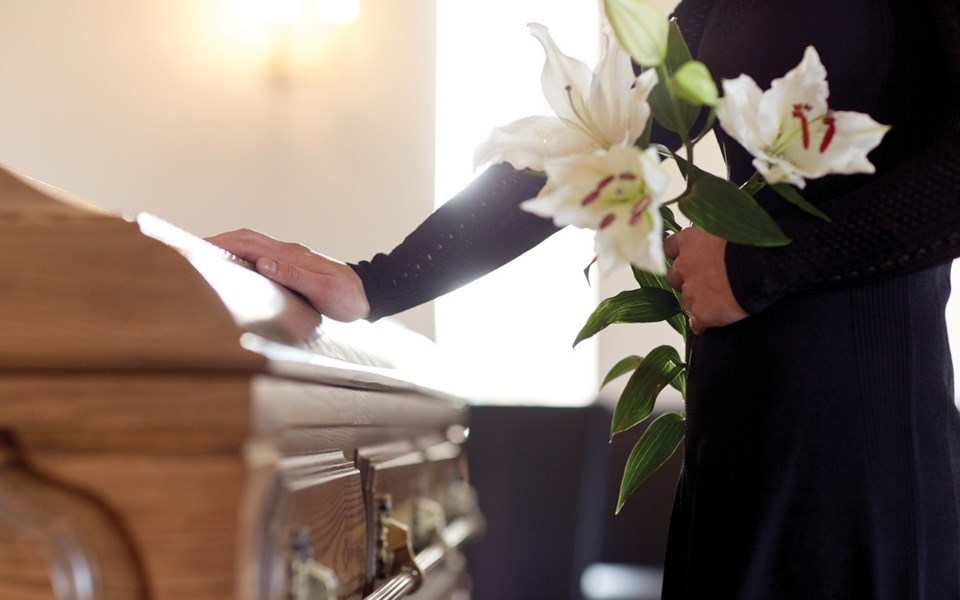There are plenty of conversations that can be difficult to start, but once you get going, all parties are better off for it.
Perhaps the most difficult of those revolves around death and dying, but there's a movement afoot to help make the discussion far more palatable.
Led by facilitator Christina Prevost, Whistler had its first-ever Death Café at the Whistler Public Library on Sept. 8.
"There's a lot of talk about anti-aging and trying to stay alive longer, but the bottom line is we all are going to die and we all know it intuitively, but we don't want to talk about it," Prevost said.
Prevost has observed death closely in her professional life, as she was a nurse and, more recently, became a "death doula" helping people prepare to pass on by making advance care plans and taking care of clients' legacies. One of the major benefits to talking openly about death, she has seen, comes with dealing with the passing of a loved one.
"People are in shock, usually, when family members have died, especially when things are not organized in advance," she said. "There's some delayed grief reaction, so I think the more you prepare people and the more you talk about it, the less of a shock it is."
As for the event itself, little is set in stone, as those in attendance can openly talk about aspects of death they would like to bring up. Prevost explained her role is to provide the opportunity and only lend a steering hand when necessary.
"I host it, but I'm really just a facilitator who sits back and assists with the conversation if they stall. It's amazing when you do get people together to talk about it. You start with an introduction about, 'Why did you come to the Death Café?' and that in itself starts the conversation," she said. "There are things brought up with each person that's introduced, then it goes from there."
Also key is ensuring that those in attendance understand that they are in a safe setting and can broach the topics they'd like.
"My role is that people know that it's a safe environment, there's confidentiality. It's really just a conversation and there's no agenda. It's just really whatever comes up and what people want to talk about," she said. "In our society, it's kind of the last taboo and people don't openly talk about it because it seems morbid or it's seen as a negative thing.
"We've repressed it to the point of it kind of being hidden."
Prevost explained that the conversation can meander whichever way it will, and there's no designated end point that the group needs to reach.
"It's just having the conversation. People begin to realize what's important for them or what they need to talk about," she said.
Of course, there are several threads regarding death that the attendees can pull at. It can do with one's own mortality or grief from another's death. Topics can range from practical to philosophical, as well.
"People might want to talk about, 'What are the new green options?' ... 'I have trouble with my family members. This is what happened.' People want to talk about grief—we are not a bereavement, counselling, or support group—but people will just talk about it. People might share resources they've used, and then we'll move on," Prevost said. "Some people want to talk about legacy—how do they want to be remembered? Or, if you only had 30 days left to live, what would matter most to you? What would you want to do and accomplish?"
As the conversation is participant-directed, some who show up don't necessarily know what they want to talk about when they walk in the door, but then gain some perspective once the ball gets rolling.
Prevost said those who attended the first Death Café were in the 50-plus range, though accounts of other events across the world describe folks from all age ranges showing up to take part. Though, as a mountain resort, Whistler is often associated with a younger demographic, Prevost stressed that there is an aging population in place here as well.
"Whistler has an older population. There are a lot of people that have been in Whistler for 20, 30, 40 years, or they're selling their homes in Vancouver and moving up permanently," she said. "They're into their 50s and 60s and want to have these conversations."
Prevost herself became involved in the movement through her training as a death doula after being provided with a wide variety of resources at the time. She looked into the Death Café, and also attended a similarly modelled Death Over Dinner event in Calgary to find out more.
The movement was started as café mortel by Swiss sociologist Bernard Crettaz in 2004, with Jon Underwood of the United Kingdom later taking up the Death Café mantle in 2011. The non-profit program is now offered in more than 65 countries.
Though only a handful showed up for the inaugural session, Prevost has higher hopes for future events, including at the Whistler Museum and Archives on Oct. 28 at 7 p.m.
"It's a conversation on life and living and what death means to us," she said. "It's more of a meditation, not on dying, but on living life."




